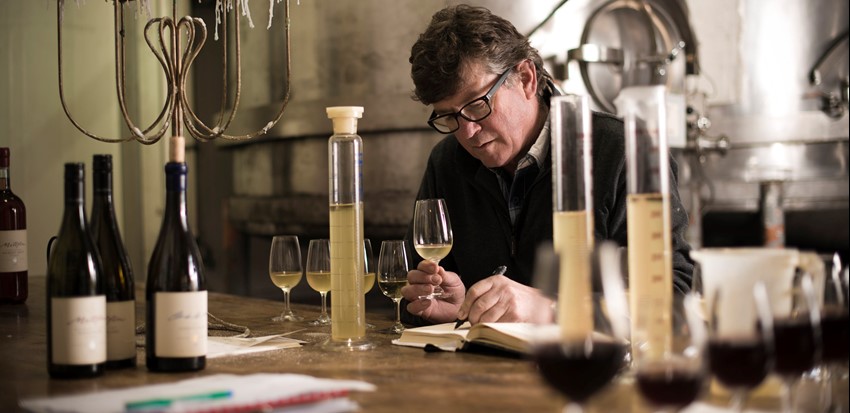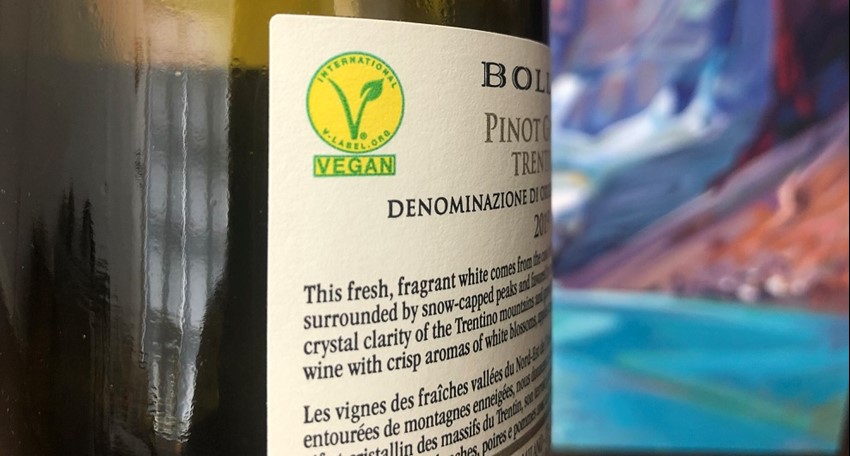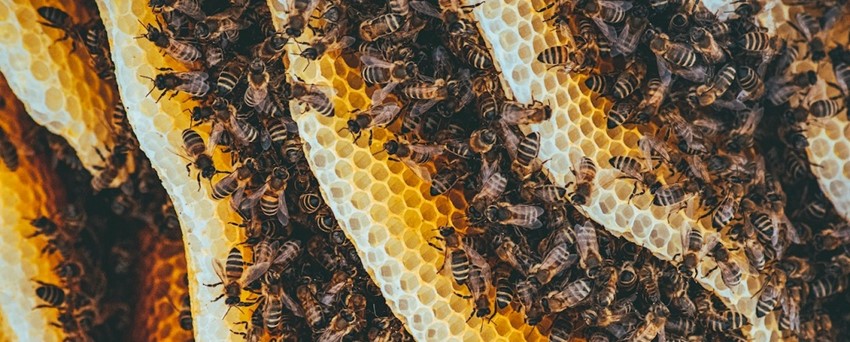What is Vegan Wine?
Written by Emily Humphreys
More and more of us are turning to plant-based diets, whether that’s as flexitarians or fully committed vegan.
Maybe you’ve noticed an increase in consumer awareness and requests for vegan wine? Surely, being made from grapes, all wine is vegan by default!?
Unfortunately, whether a wine can be classed as vegan or not is more about how it was made rather than what it’s made from.

Millton Vineyards use animal-free alternatives during the fining process.
The main area of concern is the use of animal-based products for fining wine.
Why does wine need fining?
After alcoholic fermentation, when the grape sugar has finished being converted to alcohol, the wine is left hazy and cloudy. Fining is a process used to clarify the wine. As well as being visually more appealing to consumers, it can also help stabilise the wine, reducing the risk of spoilage; removing excessive tannins in red wine; as well as unwanted colour, bitterness, or flavours.
A protein-based substance is added to the wine. Rather like a chef using egg white to clarify a consommé, the protein acts like a magnet – attracting small particles and binding them together so it can be filtered more easily. While the protein is filtered out, along with the particles, it is this protein source that can determine the wine’s suitability for vegans.
Many fining agents are derived from animals. Historically a traditional fining agent was blood from cattle or oxen. It has been banned in the EU since 1997 in response to Mad Cow Disease, but there are other animal-based fining agents still widely used today. These include gelatin, isinglass (a kind of fish gelatin), albumen (egg white), and casein (milk). Wines that use these products cannot be labelled vegan.
What’s the alternative?
Fining agents that are not derived from animal proteins do exist. The most common are: a type of clay called bentonite; Polyvinylpolypyrrolidone (PVPP), which is a synthetic compound; and carbon.
It’s not as simple as replacing all animal-based proteins with these vegan-suitable ones though.
Each fining agent serves a particular purpose beyond their ability to clarify the wine that needs to be considered when selecting a suitable product. For example, bentonite is used more for white wines than red, as it can also strip colour from the wine.
That said, rising veganism coupled with stricter allergen labelling laws in various regions, means animal-based products are becoming less desirable. Experimentation continues with plant-based proteins derived from potato and peas, among others, to increase the number of viable alternatives.

Photo credit: The Social Herbivore
Some winemakers avoid fining altogether. Instead, they might opt simply for a gentler filtration, or prefer to leave their wine unfiltered and cloudy in appearance. These wines are sometimes labelled as “natural” or “minimal intervention” wines, although neither of these terms are regulated.
A wider definition
Beyond the choice of fining agent there are a few other concerns. Some closures are animal based, such as beeswax or agglomerate cork that uses milk-based glue to bind the pieces together.

There are also certain viticultural practices to consider, particularly those involved with biodynamics, which prescribes the use of cow horns and animal organs as preparation in the vineyard.
Then there are the grey areas. Depending on how strictly you interpret the idea of animal exploitation – the use of sheep to graze, ducks and geese as natural pest control and fertiliser, bees to increase biodiversity and horses to plough, might need to be considered.
For the most part, a vegan wine is widely accepted as one that has no animal additives, but there are some who may wish to be more informed about a producer’s wider philosophy and practices.
